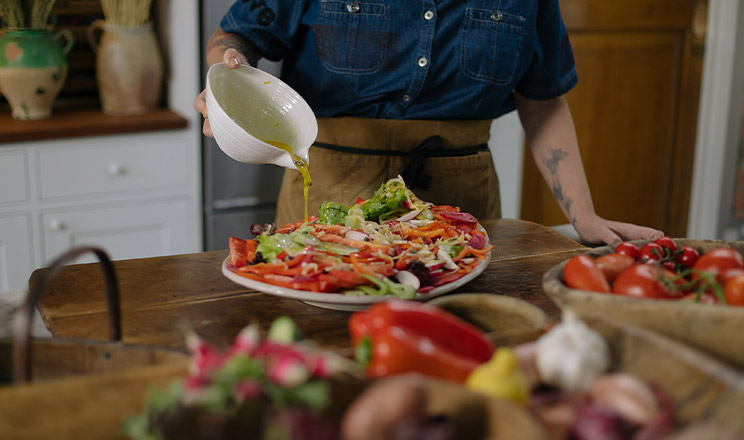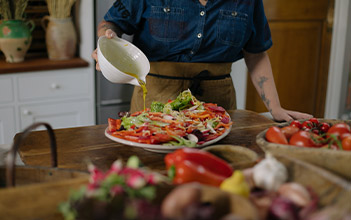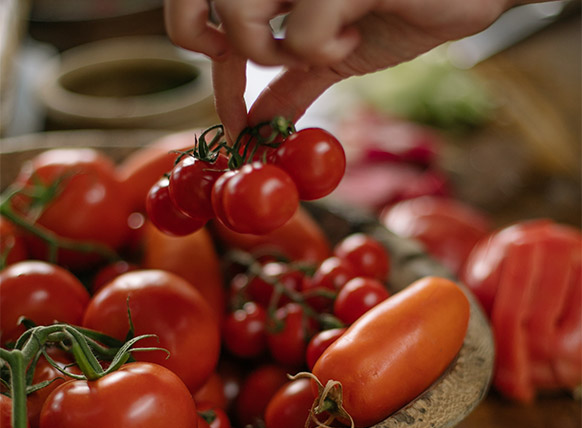The UK produces around 9.5 million tonnes of food waste each year6, most of it originally fit for human consumption. Some 70% of that waste comes direct from households, and 4.5 million tonnes of it could have been eaten7.
Old-fashioned housekeeping tips can help, such as keeping an eye on what's in the fridge, planning meals based on leftovers and not getting hung up on best-before dates. Apps like Too Good to Go help salvage restaurant food, while Olio lets communities share unwanted food.
Root to shoot eating can help save the planet and money alike, be it making pesto with carrot tops, cooking potatoes with their skins on, or adding broccoli stems to pasta or a stir fry.
From energy to food to fashion, there are many areas of life where we can take action for climate. And check out our Change Maker hub for more inspirational stories from people who are taking action for climate.





